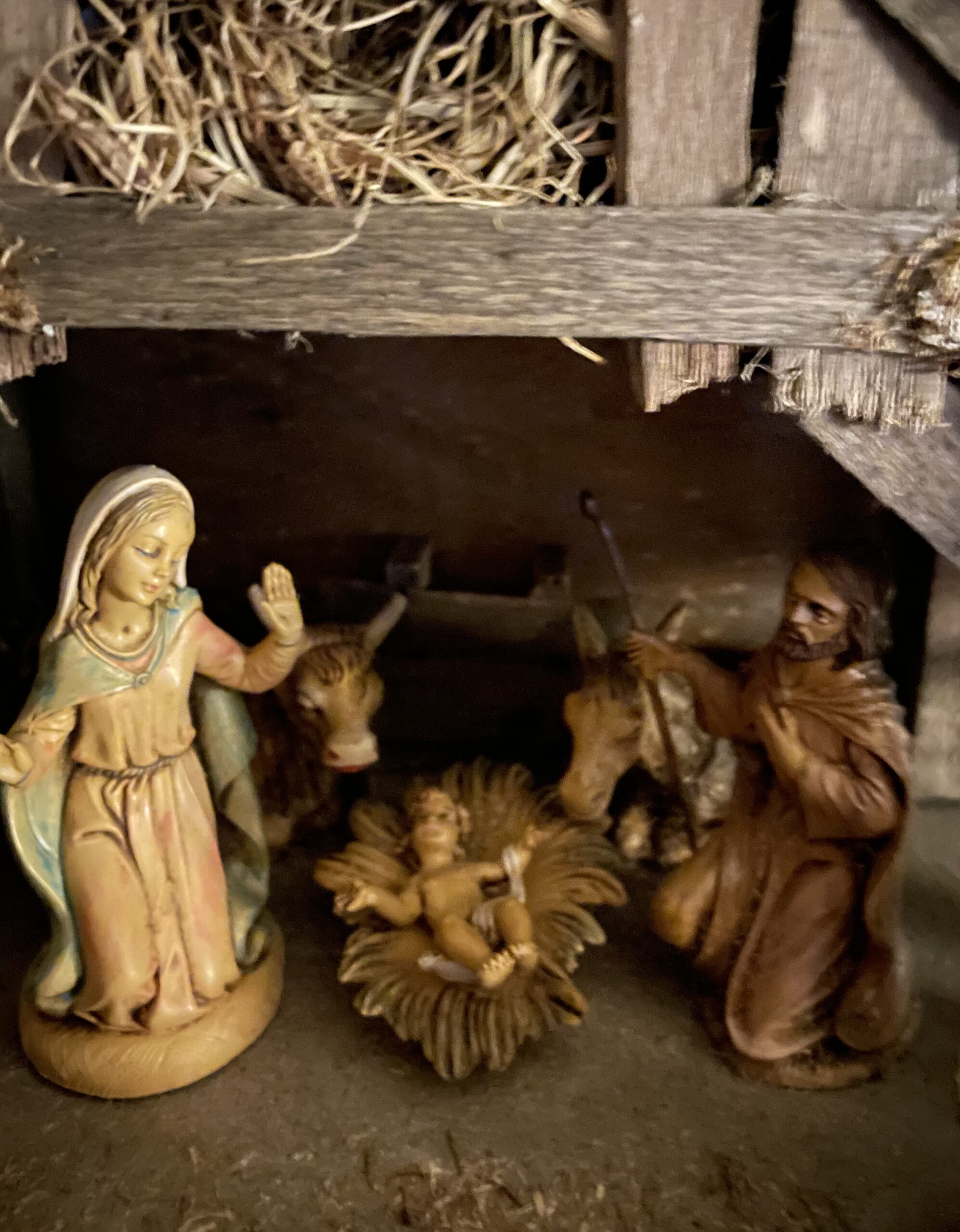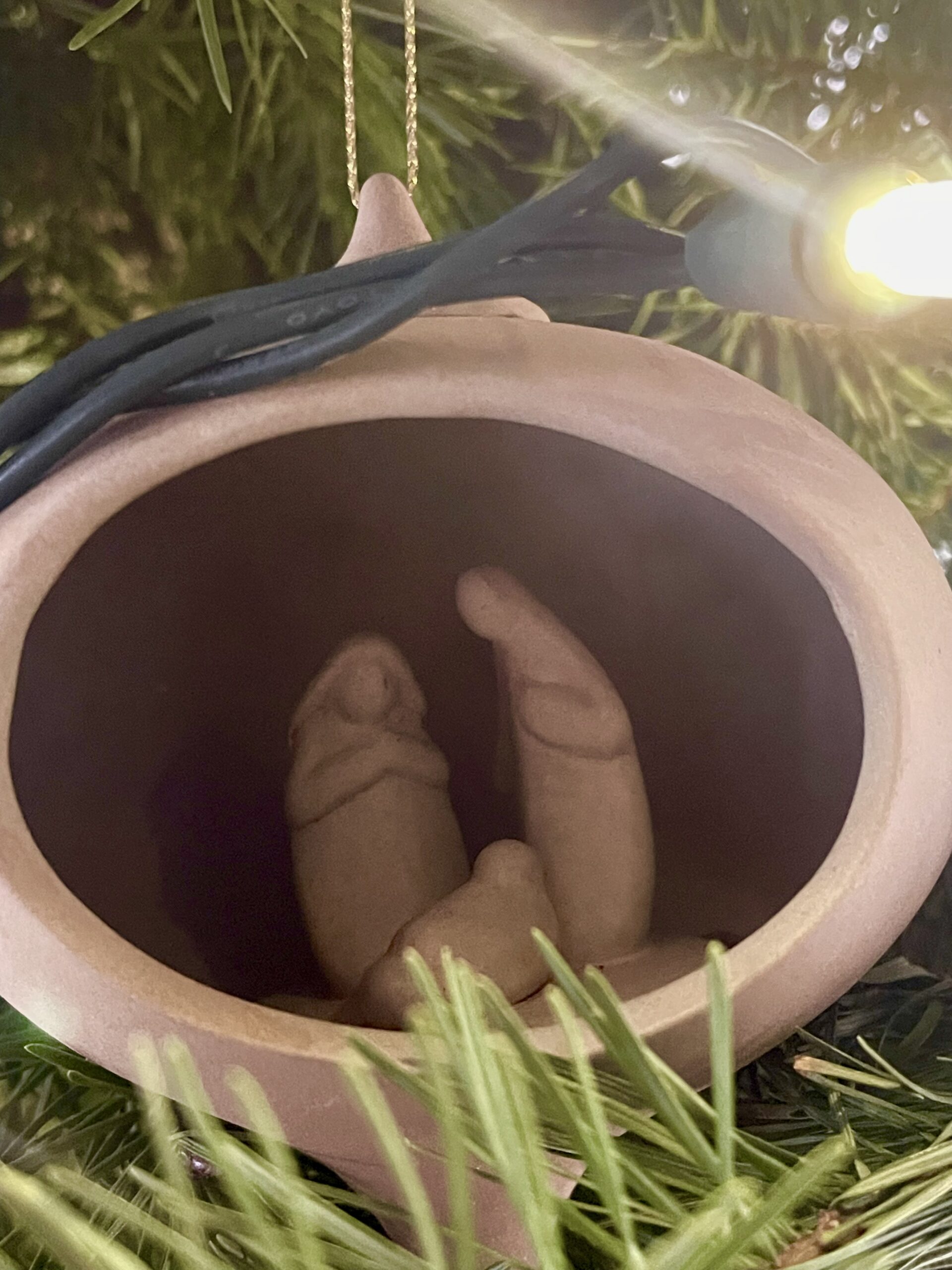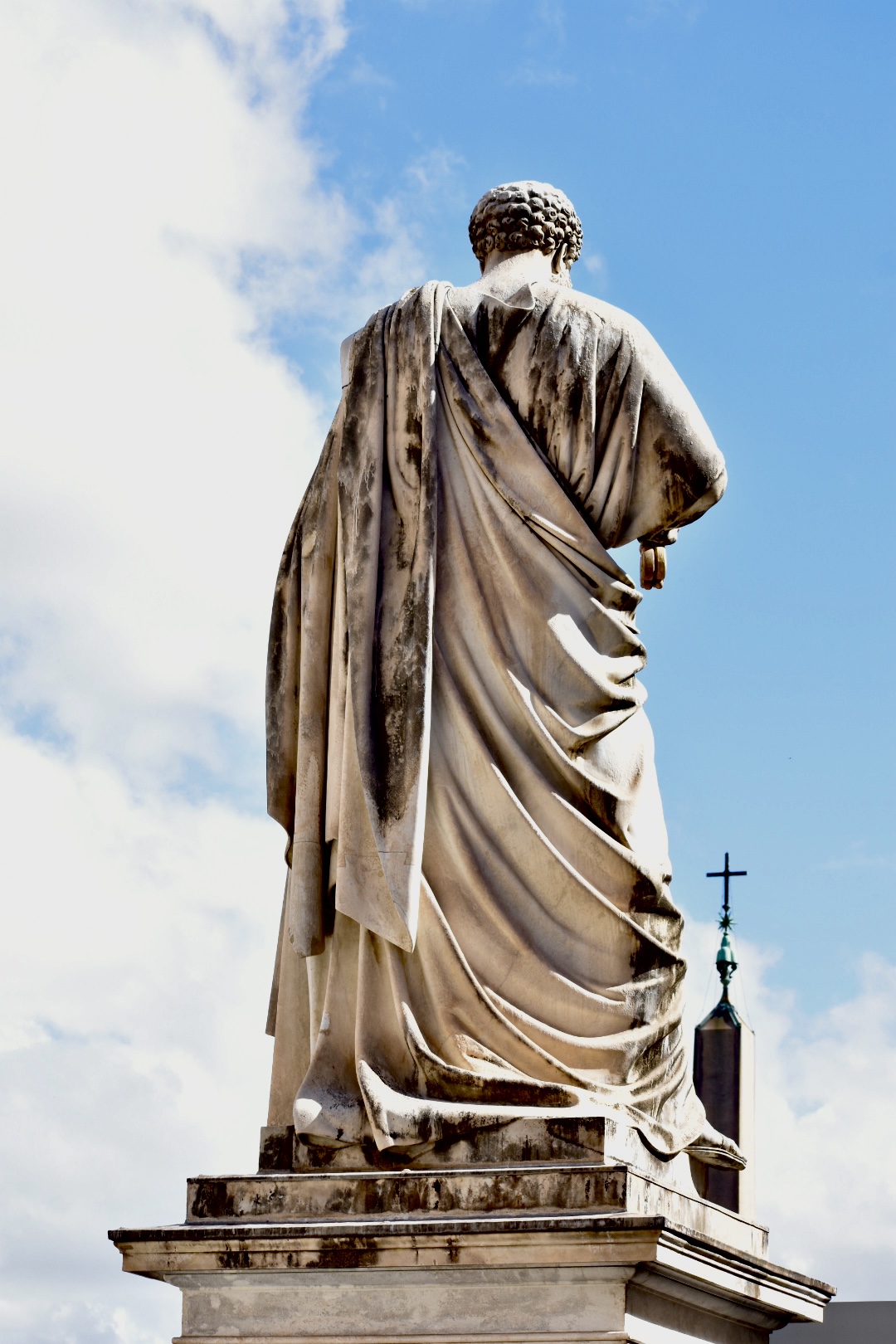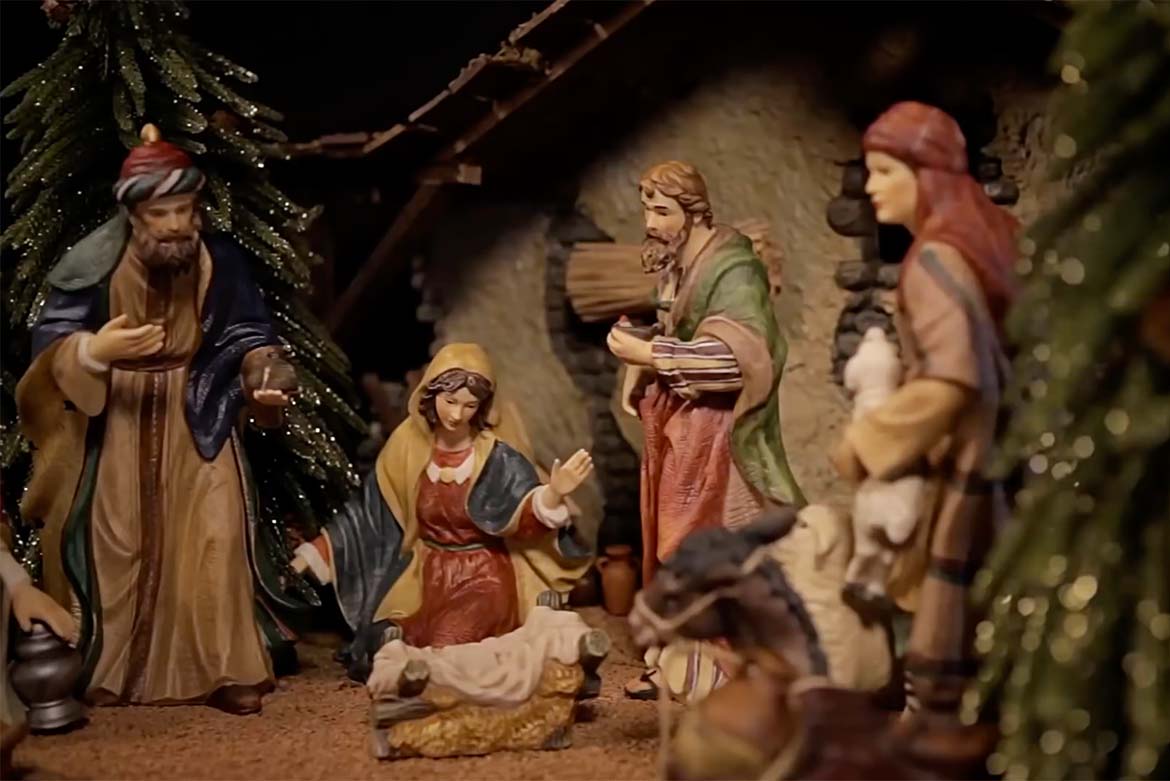
An Advent of Change
Henri Nouwen once wrote, “…to pray is to change” and then he asked, “Why would you want to
do that?” Nouwen named what we all know: change is hard. Even when we are instigating
change in our own lives, under our own direction, change is difficult and complicated. I wonder
if we might consider this same axiom and question about change in our Advent journey. In
other words, to enter Advent is to change… why would you want to do that?
Consider the stories of Advent. First we find John the Baptist out in wilderness calling people to
repent and be different. That’s change of a religious, ethical, and moral sense. We have
Zechariah’s temple experience leading to a physical change as he becomes mute. Elizabeth
and Mary also experience physical change as they carry children in their wombs. The
shepherds change is geographical. Invited by the angel they make a journey of promise.
I am convinced that these changes are also, and absolutely, spiritual because, as in Nouwen’s
vein, they are all changed in who they are relative to Jesus. John the Baptist will ultimately
prepare the way of the Lord, baptize Jesus, and name him as the one who is greater.
Zechariah’s inability to speak forced him into a position to listen to the new thing that God was
going to do. Elizabeth would be the first witness to the not-yet-to-be born Jesus. Mary would
have to ponder the news that she received and then she would proclaim that her son would
bring justice and equity. The shepherds would witness Jesus’ birth and be sent out to share the
good news.
At Chrysalis we are committed to helping clergy work through the changes that life presents.
Sometimes those are vocational. Sometimes those are spiritual. Sometimes those have to do
with wellness and mental health. No matter what, we are here to help.
In this Advent season, as you light candles, hear the stories of the incarnation, and stand as a
witness to the light that is coming into the world, we hope that you find Joy, Peace, Hope, and
Love—as a way to change.
On Advent Watch,
The Chrysalis Team

How Much Light?
The Christmas tree glows in the corner complete with a tree topper star that projects
snowflakes onto the ceiling. Meanwhile the electric wreath hangs in the window shining its LED
blessing onto the outside world. Another Christmas tree, the small plastic one with the built-in
lights, sits in another room of the house serving as a kind of seasonal night light. Light
everywhere! Come, Lord Jesus. Come.
This actually feels like too much to me. When it comes to holiday decorating—and I mean any
holiday—I am a minimalist. This is especially true for Christmas. My kids and I have some
decorations that we put out, and we have our real and fake trees, but that’s about it. I don’t do
outside lights, I don’t do blow-up yard ornaments, and I sure don’t have a soundtrack that
orchestrates the whole thing.
To me, a little light is all that is needed. A little light breaks the despair of darkness without
burning the retina. A little light reminds me that sometimes that is all that is needed to
cast out fear, to break the power, and to bring hope.
Advent is a one-candle-at-a-time kind of season. It is a season that builds. It is a season that
refuses to overpower. It is a season that invites patience and time to ponder. It is a season that
waits
In this time of lighting candles one by one, Chrysalis invites you to find just enough light for today. If we can help with that,
please know that we are right here. As the old saying goes, “We would rather light a candle than curse your darkness.”
Come Lord Jesus. Come.
The Chrysalis Team

Gauges
If I’m honest I really only look at two gauges on the dashboard of my truck. I watch my
speedometer and I check my gas gauge. I know that there are other gauges in my information
cluster: tachometer, battery charge, oil temperature, and maintenance. But the truth is that I
only notice this information when something goes wrong or when it beeps or flashes. Most of
the time I just trust that everything is going to work when I start the vehicle.
How many gauges do I pay attention to when it comes to my life and ministry? Over the course
of my career I have certainly known when I was running on empty, so to speak. Sadly I usually
found out how low my tank was when it was too late and I was coasting to a stop. I’ve also
been aware when my engine has been running too high and the stress of pastoral ministry was
making me feel out of control.
What about you? What gauges do you watch? What information do you look for that indicates
whether you’re healthy or not in ministry?
At Chrysalis Counseling for Clergy we know that healthy ministry involves multiple aspects of
life: spiritual, mental, emotional, social, and financial. We also know that pastors are often so
stressed that they fail to see the lights on the dashboard flashing when one or more of these
areas needs attention.
If you paused for a moment this week and took a good long look at the dashboard of your life
and ministry what would the gauges tell you? How full is your spiritual gas tank? Is your mental
tachometer revving high or nice and smooth? Does your emotional gauge show hot or cold? Is
your social life in neutral, park, drive, or reverse? And what about your financial indicators: are
you upside down or right side up?
Is a mechanic or technician needed after this assessment? If so, please reach out to us at
Chrysalis Counseling for Clergy. We are here to help clergy find wholeness and health in
ministry.
Here for the Long Haul,
The Chrysalis Team
Learn More
Faith and Ministry
One of the issues that can exist for pastors is the blurring of the delicate line between faith in God and loyalty to the church. We hear the story often at Chrysalis Counseling for Clergy. A person experiences the grace of God in a profound way, they have a sense of calling to serve God, and they find a way to live out that calling in the church. In one sense this is the beauty of communities of Christ that nurture the gifts of people and empower them to serve.
But what happens when a person’s experience of the church is a difficult one? What happens when a pastor and a congregation are at odds? What happens when a pastor experiences burnout, physical, or mental health issues, in their ministry? Sometimes the experience of ministry makes clergy question their own faith in God. In these moments clergy may equate faith in God with “successful” ministry. Conversely, they may consider the difficulties of ministry as a failure, or lack of faith. In these moments clergy sometimes create a cause/effect relationship between ministry and faith. This is when we at Chrysalis start hearing phrases like, “I just need to pray harder… I need to be more faithful…I can’t forgive myself…”.
Perhaps a healthier understanding of this tension would be to remember that ministry is an expression of our faith in God. Ministry is the vocation in which we live out our faith, but ministry in and of itself is not our faith. Instead, our faith is in God through Jesus Christ and the Holy Spirit. God will never fail us. God’s love is steadfast and unfaltering. Ministry has ups and downs. Ministry has peaks and valleys. Because ministry it is inherently tied up with people it is an experiment in the tension of sin and grace. People can fail us and we can fail people. God’s love never fails.
Perhaps this is why it is helpful for clergy and ministry leaders to make frequent analysis of their own spiritual life and practices. A list of devotional and formative practices that inspire and ground clergy is too numerous to compile here. However, clergy tend to know—whether they admit it or not—if they are really paying attention to the spiritual life.
At Chrysalis Counseling for Clergy we are here to walk alongside clergy in supportive ways. If you are struggling with a scenario like the one described above we can help:
- Differentiate between faith and ministry
- Plot out constructive life/ministry balance
- Help identify spiritual practices
- Listen
We are here to help.
Learn More
When the Bottom Drops Out
At Chrysalis Counseling for Clergy we acknowledge how difficult ministry can be. The demands placed upon pastors and ministry leaders today are complex and varied in ways heretofore not experienced. Not only is the sheer practice of ministry more and more complicated, but the effects of this stressful environment on the overall health of ministry leaders are profound as well. In short, we know that being a pastor takes its toll in physical, emotional, spiritual, mental, and sometimes financial ways. Many pastors are able to maintain some semblance of balance in the midst of this stress. But sometimes the bottom drops out. What do we do then?
Over the course of my 30 plus years working the church the bottom has dropped out on me twice. The first time was a maelstrom of burnout, depression, stress, and health issues. When the bottom dropped out that time I had to seek professional help to get my footing back. In this case, my therapist, close friends, and family, were able to help me see that I needed help. I also learned in this situation that often when the bottom drops out our judicatory leaders aren’t prepared to help, or don’t want to help. Instead the people closest to us come to our aid.
The second time the bottom dropped out for me was when I was told that there was no longer any place for me where I was working in ministry. In this case the issues were external—loss of a job—rather than mental and physical health issues. However, the feeling was all too familiar. Suddenly I was in a no-man’s land of vocational and personal identity. Additionally the fear of financial hardship and questions of what would be next were constantly on my mind. In some ways this experience felt like a scene out of Job where everyone had a great idea for what I should do next. However, in spite of the good intentions of those dear friends, when the bottom falls out it is hard to find the footing necessary to make even the simplest of decisions.
I share these stories as an invitation. At Chrysalis Counseling for Clergy we are deeply concerned for pastors whose engagement in ministry takes its toll on the pastor themselves. If you’re struggling with burnout, with depression, with vocational identity issues, or if you are feeling like the bottom is dropping out, reach out to us. Chrysalis Counseling for Clergy is staffed by licensed therapists who understand the demands of ministry—because we are pastors ourselves.
There is hope!
The Chrysalis Counseling for Clergy Team
Learn More
Freedom
July 4, 2023
Happy Independence Day! Perhaps no word resonates with the American democratic experiment than freedom. Our history books and national mythology teach us that freedom was the driving force of what became the United States of America. And yet, we know that despite the promises of the Declaration of Independence not everyone is treated equally even if they are all created equally.
Now, before you think that this post is a political polemic, let’s press the pause button. Rest assured, Chrysalis Counseling for Clergy is not a political action committee. However, freedom is an important topic for our consideration as clergy, ministry professionals, and really anyone who pays attention to the spiritual life.
Freedom, as a spiritual category, finds its most significant roots in the work of St. Ignatius of Loyola. Ignatius understood freedom to mean that we are not attached to anything, anyone, or any decision in such a way that that attachment would keep a person from responding to God. Ignatius called this inordinate attachment. Spiritual freedom is the disposition of the heart in which we recognize that all things are created by God and are a gift of God. At the same time we also pay close attention to being drawn too close to anything or anyone that interferes with this freedom.
While this is a fairly easy concept to understand from a spiritual perspective, it is difficult to practice in real life in real time. For example, have you ever tried to go to sleep only to find your mind reading back through emails from the day? At a very pedestrian level this is an example of inordinate attachment. Holding on. Rehashing. All of those traps we get in can indicate that we are paying too much attention to something that is not the basis of faith: loving God, neighbor, and self. As you can imagine, if spiritual freedom can be applied to how long we think about email, just imagine how significant it is to discerning our vocational calling.
As clergy and ministry professionals we are inundated daily with opportunities to love God through our work, presence, and relationships, However these same experiences can be ones that we hold onto too tightly. We attach ourselves to some because they are a negative experience and they hurt in our heart or they roll around in our heads. Conversely, some of the experiences are so good that we hold onto them as affirmations, as validation, or even as a substitute for the love that we seek and share from the Divine Source—God.
If you were to think about your own ministry, are you able to name situations, moments, or experiences, that you hold onto too tightly? Perhaps an exercise to practice is feeling the difference between a clenched fist—holding on too tightly—and an open hand which can give and receive.
Perhaps this short blog or even the simple practice of clenching the fist and opening the hand has invited you to consider that which you might have an inordinate attachment. If so and you would like to discover more about spiritual freedom reach out to us at Chrysalis. We are here for you.
On your side,
The Chrysalis Team
Learn MoreTrust the Story
Moving through the Lenten season draws us near to Easter and the story of the resurrection. On one level, this is joyful and exciting. On another level, especially for pastors, the nearing of Easter can bring pressure and anxiety. Holy Week is often filled with extra services. Easter Sunday can come with a higher level of expectation. What can we do in this midst of this crunch time to care for ourselves as pastors, shepherds, and congregational leaders?
Perhaps a good place to start is to remind ourselves that the story itself is where the power lies. The scenes of Holy Week—Palm Sunday, the Upper Room, the Garden of Gethsemane, Jesus’ arrest and trial, and Jesus’ crucifixion, are stories that are so powerful that they stand on their own in our Christian heritage. While we might have a homiletical and liturgical responsibility to bring these stories to life in a contextual way, the power really does lie in the stories themselves. Remembering this and leaning into the stories that shape our faith can relive some of the pressure from the pastor thinking that they have the responsibility of making Holy Week meaningful. Similarly, the same is true, maybe even more so, for Easter Sunday.
Another important consideration in this season is how pastors are caring for themselves as the intensity of Lent, Holy Week, and Easter, ramps up. Because of the responsibilities at this time of the year are so intense it is absolutely critical to stay focused on the spiritual formation practices, healthy habits, and well-being essentials that allow us to lead in the way in which God would have us to lead.
Here at Chrysalis we are praying for pastors and church leaders in this holy time. We know how significant this season is, and we understand how difficult it can be. If you find yourself in need of support or assistance, please feel free to reach out to us.
With Hope!
The Chrysalis Team
Learn More
When Our Call Feels Like a Burden
What happens when our call feels like a burden? The stories that we just read in Advent all feature God calling people to participate in the mystery of Christ’s birth. Each of them says “yes” in some way or another. Similarly, ministry leaders at some point responded to a call from God for Christian service. While the Advent stories of Joseph, Mary, Zechariah, Elizabeth, the shepherds, and Magi, are each marked with joy, hope, love, and peace, sometimes the call upon our lives as ministry leaders can feel like something else; a burden.
Where did Advent and Christmas leave you emotionally? At the end of a season when pastors are called to “do” so much, how do we reclaim our call when we might feel burdened? On some level most of us probably already know the answers to that kind of question. We know through our training that prayer and spiritual disciplines ground us. We know that reaching out to trusted friends and colleagues helps. We know that taking time to exercise, eat right, and balance our work and personal life, makes a difference.
Nonetheless, sometimes doing those things is too much. When that happens, and when ministry becomes a burden too great to carry, what do we do? First, it is important to understand that you are not alone. Biblical giants like David and Elijah found themselves burdened to the point of being disheartened and down for the count. We also know that in our modern world clergy feel overwhelmed more often than not. Consider also that after Mary was visited by the angel with news almost impossible to believe she journeyed to see Elizabeth. You are not alone.
Second, it is important to know that there are resources that can help. You’re here, at the Chrysalis Counseling for Clergy website. We offer tele-mental health, covenant groups, and renewal retreats. In the short term, contact us if you need a mental health professional to speak with, want to engage in a supportive community, or just need some time away for renewal.
Third, take this as a word of encouragement: even if it is difficult—do something that gives you life, reminds you of your call to ministry, or just excites you about ministry. It doesn’t have to be a big thing. It doesn’t have to change the world. Just do one thing that makes a positive impact on you.
Finally, let us know how we can walk alongside you.
Learn More

